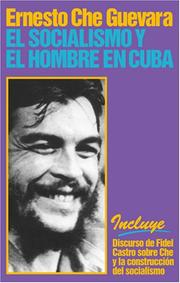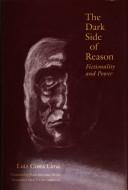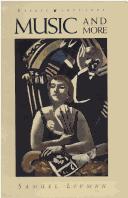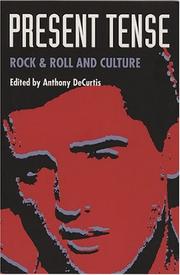| Listing 1 - 10 of 227 | << page >> |
Sort by
|

ISBN: 0873485785 Year: 1992 Publisher: Nueva York : Pathfinder,
Abstract | Keywords | Export | Availability | Bookmark
 Loading...
Loading...Choose an application
- Reference Manager
- EndNote
- RefWorks (Direct export to RefWorks)
Book
ISBN: 2130668593 Year: 1992 Publisher: Paris cedex 14 (Humensis 170 bis, boulevard du Montparnasse 75680) : Presses Universitaires de France,
Abstract | Keywords | Export | Availability | Bookmark
 Loading...
Loading...Choose an application
- Reference Manager
- EndNote
- RefWorks (Direct export to RefWorks)
Cette édition numérique a été réalisée à partir d'un support physique, parfois ancien, conservé au sein du dépôt légal de la Bibliothèque nationale de France, conformément à la loi n° 2012-287 du 1er mars 2012 relative à l'exploitation des Livres indisponibles du XXe siècle. L'Occident n'a jamais connu une paix aussi profonde et pendant aussi longtemps ; elle lui a permis de développer des institutions, un droit, une langue, un art, une civilisation aux origines diverses. « Copyright Electre »

ISBN: 0804719764 9780804719766 Year: 1992 Publisher: Stanford, Calif. Stanford University Press
Abstract | Keywords | Export | Availability | Bookmark
 Loading...
Loading...Choose an application
- Reference Manager
- EndNote
- RefWorks (Direct export to RefWorks)
This compelling, many-faceted work argues that Western culture has always found something profoundly unsettling about imaginative writing and that it has devised various ways of "containing" such writing or at least making it less dangerous. The historical record of censorship and other forms of the containment of literature is relatively well known, though it has been analyzed more often in terms of its effects on literature than its causes. Costa Lima demonstrates that theories of society and of human nature are at stake in these acts of rejection and condemnation. A new historical consciousness has recently swept across the entire breadth of literary studies. However, Costa Lima shows that this return to history is frequently nothing more than the return of an unexamined old history of literature, merely updated in its vocabulary and reflecting current concerns with such issues as gender or cultural difference. By contrast, he challenges the assumptions of the old history (and therefore of the new, insofar as the latter reinstates the old) and calls for the elaboration of an entirely different perspective on the historical course of literature. Costa Lima asserts that since the beginning of modernity, Western reason has been shaped in opposition to and through the repression of the imaginative faculty, typified by fictionality. He focuses on the history of such concepts as mimesis, individuality, and verisimilitude, and in the process covers a wide range of authors and topics--Cervantes, Diderot, Borges, autobiographical writing, and Latin American literature, among others. The Dark Side of Reason consists of essays drawn from two books, Sociedade e discurso fictional (1986) and O Fingidor e o censor (1988). It also includes a chapter, written especially for this volume, that discusses Shakespeare's Tempest in the light of Costa Lima's argument about control of the imaginary.
Book
ISBN: 3496010940 Year: 1992 Publisher: Berlin Reimer
Abstract | Keywords | Export | Availability | Bookmark
 Loading...
Loading...Choose an application
- Reference Manager
- EndNote
- RefWorks (Direct export to RefWorks)
Book
Year: 1992 Publisher: Würzburg s.n.
Abstract | Keywords | Export | Availability | Bookmark
 Loading...
Loading...Choose an application
- Reference Manager
- EndNote
- RefWorks (Direct export to RefWorks)

Abstract | Keywords | Export | Availability | Bookmark
 Loading...
Loading...Choose an application
- Reference Manager
- EndNote
- RefWorks (Direct export to RefWorks)

ISBN: 0822312654 Year: 1992 Publisher: Durham, N.C. ; London Duke University Press
Abstract | Keywords | Export | Availability | Bookmark
 Loading...
Loading...Choose an application
- Reference Manager
- EndNote
- RefWorks (Direct export to RefWorks)
Book
ISBN: 0195630947 Year: 1992 Publisher: New Delhi : Indira Gandhi national centre for the arts,
Abstract | Keywords | Export | Availability | Bookmark
 Loading...
Loading...Choose an application
- Reference Manager
- EndNote
- RefWorks (Direct export to RefWorks)
Book
ISBN: 9186320947 Year: 1992 Publisher: Göteborg : Daidalos,
Abstract | Keywords | Export | Availability | Bookmark
 Loading...
Loading...Choose an application
- Reference Manager
- EndNote
- RefWorks (Direct export to RefWorks)
Book
ISBN: 1863731717 Year: 1992 Publisher: North Sydney, Australia Allen & Unwin
Abstract | Keywords | Export | Availability | Bookmark
 Loading...
Loading...Choose an application
- Reference Manager
- EndNote
- RefWorks (Direct export to RefWorks)
| Listing 1 - 10 of 227 | << page >> |
Sort by
|

 Search
Search Feedback
Feedback About UniCat
About UniCat  Help
Help News
News